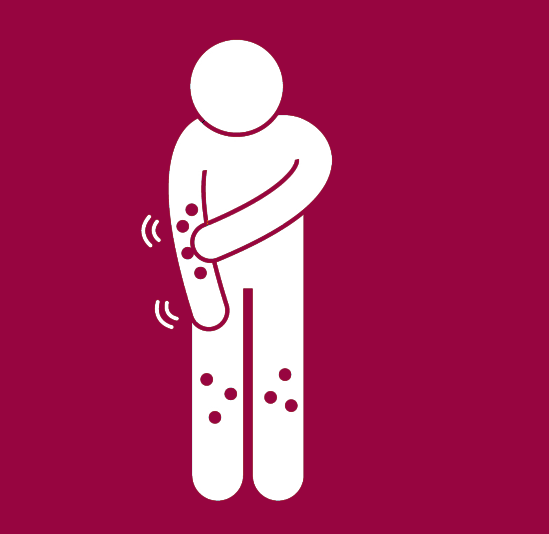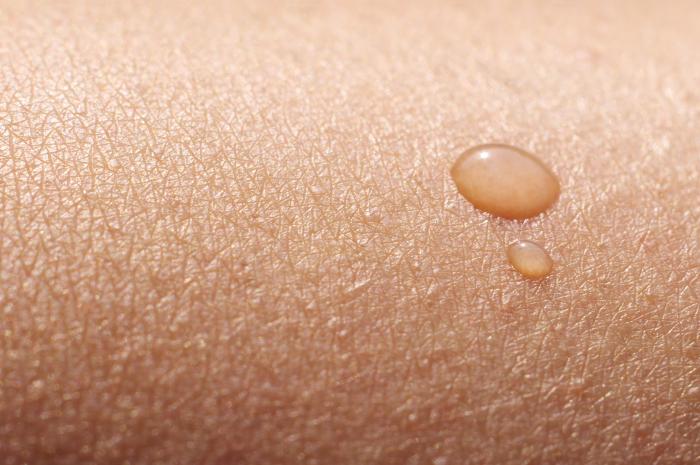You are here
Psoriasis
Psoriasis is an immune condition that causes flaky, crusty, red patches (on Caucasian skin) or darker patches (on darker skin) , covered with silvery scales.
These patches normally appear on elbows, knees, scalp and lower back, but can appear anywhere on the body.
Most people are only affected with small patches. In some cases, the patches can be itchy or sore.
Why do I have psoriasis?
Psoriasis is often hereditary and is not contagious. It affects males and females equally and seems to peak from late teens to early 30s and between 50 and 60, although it can occur at any age.
It occurs when skin cells are replaced more quickly than usual. We don’t know exactly why this happens, but evidence suggests it may be caused by a problem with the immune system, a buildup of toxins in the colon, or a faulty utilisation of fats.
Your body produces new skin cells in the deepest layer of skin. These skin cells gradually move up through the layers of skin until they reach the outermost level. Then they die and flake off.
This whole process normally takes around three to four weeks.
In people with psoriasis, this process only takes about three to seven days. As a result, cells that aren't fully mature build up rapidly on the surface of the skin, causing red, flaky, crusty patches covered with silvery scales.
What causes Psoriasis to flare-up?
Flare-ups can be caused by nervous tension, stress, illness, injury, cuts, bacterial infections and the overuse of alcohol or drugs, as well as the use of over the counter or prescription medications.
How can Foodwise help? 
Is Psoriasis an issue for you? Foodwise can help.
Topical creams, prescription drugs and light therapy are not your only options.
We have all the nutritional information and dietary advice to help treat psoriasis and help prevent flare-ups naturally
Join nowHow does healthy nutrition help treat psoriasis naturally?
Psoriasis used to be thought of as just a skin condition. But now it's known to be a lifelong condition of the immune system.
Since inflammation exacerbates any immune condition, it makes sense that following an anti-inflammatory diet helps manage psoriasis flare-ups by reducing inflammation.
This means following a healthy diet that focuses on avoiding some foods and including others.
Foods that are commonly associated with inflammation include wheat and dairy products, so addressing psoriasis often includes eliminating these foods to see if symptoms improve.
An effective nutritional protocol for psoriasis also includes:
- getting plenty of dietary fibre (vital for maintaining a healthy colon),
- drinking plenty of fluids, identifying contributing factors
- the appropriate use of natural supplements and home remedies.


 Psoriasis can occur at any age but seems to peak from late teens to early 30s and between 50 and 60
Psoriasis can occur at any age but seems to peak from late teens to early 30s and between 50 and 60 Psoriasis affects males and females equally
Psoriasis affects males and females equally